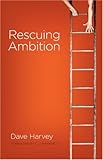Steve Jobs, from an article in Fortune a few years ago:
“We don’t think in terms of power,” says Jobs. “We think about creating new innovative products that will surprise and delight our customers. Happy and loyal customers are what give Apple its ‘power.’ At the heart of it, though, we simply try to make great products that we want for ourselves, and hope that customers will love them as much as we do. And I think after all these years we’ve gotten pretty decent at it.”
This is another example of the importance of beliefs in an organization. It is yet another illustration (with the results that follow) of what Jim Collins and Jerry Porras found in Built to Last:
…truly great organizations think of themselves in a fundamentally different way than mediocre enterprises. They have a guiding philosophy or a spirit about them, a reason for being that goes far beyond the mundane or the mercenary.
And while we’re at it, here’s another example from A.G. Lafley of Procter & Gamble, in Harvard Business Review:
I learned many things from Peter [Drucker] over the years, but far and away the most important were the simplest: “The purpose of a company is to create a customer” and “A business…is defined by the want the customer satisfies when he or she buys a product or a service. To satisfy the customer is the mission and purpose of every business.”
At P&G we keep Peter’s words in mind with every decision. We declared that the consumer — not the CEO — is boss, and made it our purpose to touch more consumes and improve more of each consumer’s life. When we look at the business from the perspective of the consumer, we can see the need to win at two moments of truth: First, when she buys a P&G brand or product in a store, and second, when she or another family member uses that product in the home….By putting customers first, we’ve nearly doubled the number served, from 2 billion to 3.8 billion; doubled sales; and tripled P&G profits in the first nine years of the twenty-first century.


 Here are some really amazing
Here are some really amazing